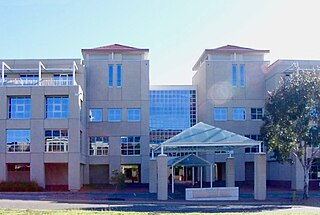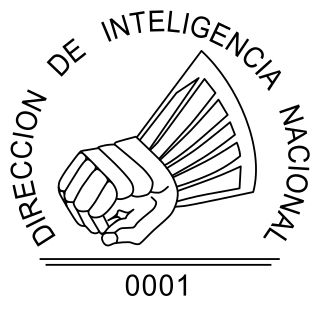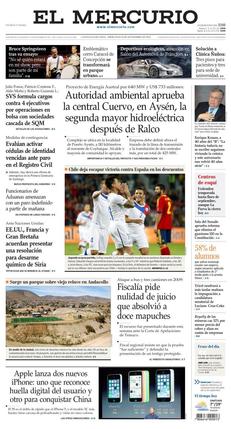
The Australian Secret Intelligence Service is the foreign intelligence agency of the Commonwealth of Australia, responsible for gathering, processing, and analysing national security information from around the world, primarily through the use of human intelligence. The service was formed in 1952, however its existence remained secret within much of the government and to the public until 1972. ASIS is a primary entity of the Australian Intelligence Community.

Salvador Guillermo Allende Gossens was a Chilean socialist politician who served as the 28th president of Chile from 1970 until his death in 1973. As a socialist committed to democracy, he has been described as the first Marxist to be elected president in a liberal democracy in Latin America.

Richard McGarrah Helms was an American government official and diplomat who served as Director of Central Intelligence (DCI) from 1966 to 1973. Helms began intelligence work with the Office of Strategic Services during World War II. Following the 1947 creation of the Central Intelligence Agency (CIA), he rose in its ranks during the presidencies of Truman, Eisenhower and Kennedy. Helms then was DCI under Presidents Johnson and Nixon, yielding to James R. Schlesinger in early 1973.

Operation Condor was a campaign of political repression involving intelligence operations, coups, and assassinations of left-wing sympathizers, liberals and democrats and their families in South America which formally existed from 1975 to 1983. Condor was formally created in November 1975, when Augusto Pinochet's spy chief, Manuel Contreras, invited 50 intelligence officers to the Army War Academy on La Alameda, Santiago's central avenue. Officers came from Chile, Uruguay, Argentina, Paraguay, Bolivia, and Brazil, which comprised the right-wing dictatorships of the Southern Cone of South America. The United States and, allegedly, France were frequent collaborators and financiers of the covert operations.

The Dirección de Inteligencia Nacional or DINA was the secret police of Chile during the dictatorship of Augusto Pinochet. The DINA has been referred to as "Pinochet's Gestapo". Established in November 1973 as a Chilean Army intelligence unit headed by Colonel Manuel Contreras and vice-director Raúl Iturriaga, the DINA was then separated from the army and made an independent administrative unit in June 1974 under the auspices of Decree 521. The DINA existed until 1977, after which it was renamed the Central Nacional de Informaciones or CNI.

Charles Edmund Lazar Horman was an American journalist and documentary filmmaker. He was executed in Chile in the days following the 1973 Chilean coup d'état led by General Augusto Pinochet, which overthrew the socialist president Salvador Allende. Horman's death was the subject of the 1982 Costa-Gavras film Missing, in which he was portrayed by actor John Shea.
United States intervention in Chilean politics started during the War of Chilean Independence (1812–1826). Since then the influence of United States in both the economic and the political arenas of Chile has been significant.

The 1973 Chilean coup d'état was a military overthrow of the democratic socialist president of Chile Salvador Allende and his Popular Unity coalition government. Allende, who has been described as the first Marxist to be democratically elected president in a Latin American liberal democracy, faced significant social unrest, political tension with the opposition-controlled National Congress of Chile, and economic warfare ordered by United States president Richard Nixon. On 11 September 1973, a group of military officers, led by General Augusto Pinochet, seized power in a coup, ending civilian rule.

An authoritarian military dictatorship ruled Chile for seventeen years, between 11 September 1973 and 11 March 1990. The dictatorship was established after the democratically elected socialist government of Salvador Allende was overthrown in a coup d'état backed by the United States on 11 September 1973. During this time, the country was ruled by a military junta headed by General Augusto Pinochet. The military used the breakdown of democracy and the economic crisis that took place during Allende's presidency to justify its seizure of power. The dictatorship presented its mission as a "national reconstruction". The coup was the result of multiple forces, including pressure from conservative groups, certain political parties, union strikes and other domestic unrest, as well as international factors.

Salvador Allende was the president of Chile from 1970 until his suicide in 1973, and head of the Popular Unity government; he was a Socialist and Marxist elected to the national presidency of a liberal democracy in Latin America. In August 1973 the Chilean Senate declared the Allende administration to be "unlawful," Allende's presidency was ended by a military coup before the end of his term. During Allende's three years, Chile gradually transitioned into a socialist state.

General René Schneider Chereau was the commander-in-chief of the Chilean Army at the time of the 1970 Chilean presidential election, when he was assassinated during a botched kidnapping attempt. He coined the doctrine of military-political mutual exclusivity that became known as the Schneider Doctrine.
Roberto Urbano Viaux Marambio was a Chilean Army General and the primary planner of two attempted coups d'état in Chile in 1969 and 1970. The first was against President Eduardo Frei Montalva, and the second sought to prevent Socialist Salvador Allende's election.

Peter Kornbluh is a senior analyst at the National Security Archive and the director of the Chile Documentation Project and the Cuba Documentation Project.

El Mercurio is a Chilean newspaper with editions in Valparaíso and Santiago. El Mercurio is owned by El Mercurio S.A.P., which operates a network of 19 regional dailies and 32 radio stations across the country.

Project FUBELT is the codename for the secret Central Intelligence Agency operations that were to prevent Salvador Allende's rise to power before his confirmation and to promote a military coup in Chile. This project came after the circumstantial failure of Track I, which involved making president Eduardo Frei Montalva interfere with the 1970 national election in opposition to Allende.

The Government Junta of Chile was the military junta established to rule Chile during the military dictatorship that followed the overthrow of President Salvador Allende in the 1973 Chilean coup d'état. The Government Junta was the executive and legislative branch of government until December 17, 1974, when Augusto Pinochet was formally declared President of Chile in late 1974. After that date, it functioned strictly as a legislative body until the return to democracy in 1990.

On 21 September 1976, Orlando Letelier, a leading opponent of Chilean dictator Augusto Pinochet, was assassinated by car bombing, in Washington, D.C. Letelier, who was living in exile in the United States, was killed along with his work colleague Ronni Karpen Moffitt, who was in the car with her husband Michael. The assassination was carried out by agents of the Chilean secret police (DINA), and was one among many carried out as part of Operation Condor. Declassified U.S. intelligence documents confirm that Pinochet directly ordered the killing.

Augusto José Ramón Pinochet Ugarte was a Chilean army officer and military dictator who ruled Chile from 1973 to 1990. He was the leader of the military junta from 1973 to 1981, and was declared President of the Republic by the junta in 1974 and thus became the dictator of Chile, and from 1981 to 1990 as de jure president after a new constitution which confirmed him in the office was approved by a referendum in 1980. His time in office remains the longest of any Chilean ruler.

Human rights abuses in Chile under Augusto Pinochet were the crimes against humanity, persecution of opponents, political repression, and state terrorism committed by the Chilean Armed Forces, members of Carabineros de Chile and civil repressive agents members of a secret police, during the military dictatorship of Chile under General Augusto Pinochet from 1973 to 1990.

Agustín Iván Edmundo Edwards Eastman was a Chilean newspaper publisher, and one of the richest people in Chile. He inherited his family's newspaper company El Mercurio SAP, which publishes Chile's leading national dailies El Mercurio and La Segunda among others, when his father died in 1956. He has been described as a media baron, and is known for his right-wing views. Throughout his time as publisher, he has used El Mercurio SAP's newspapers to influence public opinion in Chile, and he supported the 1973 coup d'état to oust socialist President Salvador Allende.















